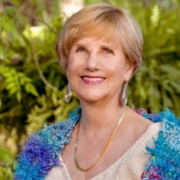Empathy: A Guide to Emotional Attunement
Why is empathy so important?
Empathy is the emotional bridge that helps people feel seen, heard, loved, and understood. Empathy is not problem‑solving, fixing, or inserting your own feelings. When one partner shares a vulnerable emotion, and the other empathizes, they co-regulate. Their nervous systems calm and they feel more open to each other. When you empathize, you have no need to change your partner’s feelings. All emotions are OK. This does not mean that you need to accept hurtful behavior. It’s important to set boundaries for self-care. But, when you empathize first, often dysfunctional behaviors cease or soften. Your partner is more open to your requests for change.
What True Empathy Looks Like
| True Empathy | Common Mistakes |
| Staying focused entirely on your partner’s emotional experience. | Inserting personal feelings (e.g., “I feel sad that you feel lonely”). |
| Reflecting your partner’s emotion accurately and warmly. | Offering solutions or explanations. Fixing the problem. |
| Using soft tone, open posture, and caring facial expressions. | Being defensive, distracted, or rushed. Judging and analyzing: (e.g., “You’re too sensitive.”) |
| Sincerely validating your partner’s experience (“That makes sense to me”). | Minimizing (“It’s not that bad”) or spiritual bypassing (“Just pray about it”) sends the message, “Don’t feel how you feel.” |
Empathy vs. Compassion vs. Sympathy
| Empathy | Compassion | Sympathy |
| Feeling with someone; entering their emotional world. | Feeling moved to help relieve the person’s suffering. | Feeling for someone from a slight distance. |
| “Tell me what it’s like to be you right now.” | “I want to support you and reduce your pain.” | “I’m sorry you’re going through this.” |
| Presence and attunement. | Kind action or comfort. | Pity without emotional connection. |
How Empathy Is Received: The Nonverbal 93%
Research shows that communication is 93% nonverbal. Tone of voice, facial expression, and body posture convey most of what people feel. The words are only 7%.
When your nervous system is calm, it’s easier to express empathy. This calm state is called the *ventral vagal state* in Stephen Porges’ Polyvagal Theory. In the ventral vagal state, your body is relaxed, your eyes are soft, your voice is warm, and your presence feels safe.
This state helps your partner’s nervous system relax so they can soften instead of being defensive. They can better receive empathy and emotionally connect with you.
Checking for Received Empathy
After offering empathy, partners should ask: “Do you feel my empathy?” If the answer is no or mostly, the listener asks, “What would help you feel more understood on an emotional level?” Then offer deeper empathy until it lands.
Closing Thoughts
Empathy is not just understanding your partner on a mental level. Your partner needs to feel felt by you and connected with you.
“Being present and connected is more important than fixing the problem.” –– Brene’ Brown
Empathy is a relational gift. When partners stay focused, attuned, and grounded in a calm ventral vagal state, they co-regulate. Their nervous systems feel safe and comfortable with each other so they co-create a secure emotional bond. With practice, empathy becomes the safe harbor where each partner feels deeply known and loved.
Recommended Resources
It’s Not About the Nail. Search YouTube for this title.
A humorous demonstration of why fixing a problem does not help your partner feel understood or empathized with.
Books on Empathy, Vulnerability & Connection
Brené Brown – Daring Greatly
Explores vulnerability, shame, and wholehearted connection.
Brené Brown – Atlas of the Heart
A map of emotions to deepen emotional literacy and empathy.
Marshall Rosenberg – Nonviolent Communication
A clear model for empathic communication and emotional presence.
Emotionally Focused Therapy (EFT)
Sue Johnson – Hold Me Tight
The foundational book on EFT and creating secure emotional bonds.
Sue Johnson – Love Sense
Explains the science of attachment and adult bonding.
Nervous System, Polyvagal, and Trauma Healing
Stephen Porges – The Pocket Guide to the Polyvagal Theory
A client-friendly overview of how safety and connection emerge in the nervous system.
Deb Dana – Anchored
Applies polyvagal concepts for everyday emotional regulation and connection.
Peter Levine – Healing Trauma
Introduces Somatic Experiencing to help people understand how the body holds stress.
About the Author
Benita A. Esposito, M.A. is a licensed professional counselor, spiritual counselor, life coach, and ordained minister. Her bestselling book, The Gifted Highly Sensitive Introvert, can be found on Amazon. Benita spots psychological patterns to reach the bottom line quickly so you don’t waste precious time. She follows a body-based grace-filled Christian path that honors all faiths. For fun, she grows beautiful flower gardens. She loves rowing on her pristine mountain lake and hiking through forests to waterfalls. Her inner shutterbug shot most of the photos on her websites.
To inquire about becoming a client, please complete the form on the Contact Page on either website: www.Flourishing-Lives.com or www.SensitiveIntrovert.com.



